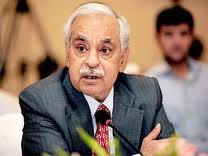  Telecom Regulatory Authority of India’s (TRAI) proposal to allow spectrum sharing should have been implemented log ago. All analysts and industry representatives support it. However, it appears that it has been misunderstood by the media and stock market players. It is being projected that the proposal, if accepted, will bring down tariff and will impact government revenue as the telcos would not bid high price for spectrum.
First of all, sharing is not a substitute of trading. Both serve different purposes.
There are flaws in both of the arguments.
Telecom tariff depends on competition. Even if a company acquires spectrum through auction, it does not have more than three paise per minute impact on tariff. This is on the assumption that a company pay exorbitantly high price for spectrum, may be at 2010 level.
The impact of spectrum sharing will be on the quality of services. In some pockets where leading player does not have sufficient spectrum, sharing will provide an opportunity to use the spectrum of other operators to improve quality of services.
Sharing will be limited to a few pockets only.
That is the reason that a telco will have to acquire more spectrum through auction if it wants to offer full fledged services to its customers and wants to increase its customer base.
The guidelines give old telcos advantage over new who have acquired spectrum through auction. Both have been put on same scale, even though old telcos got spectrum at very less price compared to the new telcos. |